Aug 26, 2025 1:53 PM
Blindfold Test: Buster Williams
Buster Williams, who at the age of 83 has been on the scene for 65 years, had never done a Blindfold Test. The first…
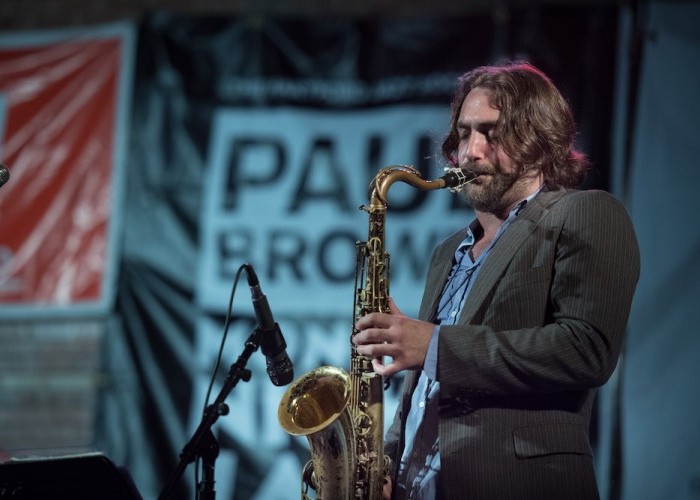
Among his numerous projects, Noah Preminger has written and recorded music based on the films of a distant relative, director Otto Preminger.
(Photo: Steven Sussman)Another piece was inspired by the 1962 political drama Advise & Consent, with Preminger writing two sections—one for the women who were in a judicial chamber of a government building and the other for men “who looked sneaky and suspect,” he said. “It goes back and forth from one section to the other with me improvising first on [music representing] the women and then Jason expressing the attitudes of the men.”
The best Preminger Plays Preminger track is an upbeat arrangement of “Way Early Subtone” by Duke Ellington, from 1959’s Anatomy of a Murder. Moran sprinkles notes then pounces on the keys while engaging in conversations with the rest of the group. “That’s a special one,” Preminger said. “Jason was familiar with the film, so he was fantastic. I never send music before a recording session, but he just came in and hit it.”
“That song has jumped into the jazz canon,” Moran said. “It just lives in my hands, and I was able to collaborate with everyone to connect the sounds to the images.” Moran met Preminger when the saxophonist was studying for his master’s degree at NEC; the two clicked. “We had lessons together, and I also formed an ensemble playing Andrew Hill music that he was in.” Moran said. “I remember Noah telling me about his Preminger album idea, so I’m glad he finally realized it. I’m into people addressing the sound of their families.”
Having composed music for the films Selma (2014) and 13th (2016), Moran enjoys connecting to narrative elements through music. “It’s a captivating experience,” he said. “It’s been a real study, a real practice for me in the past 10 years. The way Noah approached this took him into uncharted territory. He did a lot of exploring.”
In the shadow of the Preminger release, the saxophonist was finishing up After Life, an unconventional work that addresses an unusual question: What will humans see after death? Criss Cross Jazz owner/producer Gerry Teekens had forged a relationship with the saxophonist after photographer/recording engineer and frequent DownBeat contributor Jimmy Katz had recommended him. The first Criss Cross Jazz album was with a quartet, but Teekens requested that the follow-up be a quintet date. Preminger assembled a band with his longtime trumpeter Jason Palmer, Cass on bass, Rudy Royston on drums and the rising-star guitarist Max Light.
After Life features new originals that come from a strange place. “I have this fucked-up existential anxiety,” Preminger said. “I don’t have a fear of dying, but I’m interested in what happens after. I’m visual. I was hoping this would help me personally to psychologically deal with this. I came up with descriptions of the worlds we may go to. It’s total sci-fi shit. I wrote down ideas and composed based on them. Then I asked my poet friend Ruth Lepson to take my descriptions and write new poems to be used in the liner notes.”
The music is a reflective mix of sober balladry and uptempo swirls with austere themes. “Nothing World” contemplates uncertainty, with Lepson introducing her poem through a quote by philosopher Arthur Schopenhauer, “We can regard our life as a uselessly disturbing episode in the blissful repose of nothingness,” and then concluding with her own line: “Without anything, it’s the most.” The tune opens with bass lines in a slow tempo and then shifts into bleak beauty as Preminger plays a melody that soon is joined by trumpet. There’s a funereal feel to it. And the same holds true for the somber “Warehouse World,” with lyrics about painful wriggling along “the moldy endless warehouse floor.”
On the opposite end of the sonic spectrum is “World Of Hunger,” which features a frenzy of tenor and trumpet maneuvers. It opens with this line: “When you were born again, a gold star appeared in the sky,” and closes with the somber blast of “Half the world was going hungry/ It was kind of like when you were alive/ Kind of a guy thing.”
Teekens scheduled an additional period of two months for the mixing and the melding of the poetry. Overall, did Preminger find the project cathartic? “No,” he replied. “The reality is that we are all going to die. It’s terrifying.”
One particularly life-affirming experience has been navigating the complexity of his Zigzag sessions with Lampert, who first met Preminger at a trio show in a storefront church in Greenwich Village nine years ago. He was catching up with his old friend, drummer Jeff Hershfield, and saying hello to guitarist Ben Monder. “The group was led by this young guy who I didn’t know,” Lampert said. “But when he played his first phrase and then a second, I could tell the depth of his musicianship combined with a deep tenor sound.”
Preminger and Lampert became fast friends. Last year, Preminger asked Lampert to write new material for an acoustic ensemble that included Cass, Royston, Palmer, alto saxophonist John O’Gallagher, pianist Kris Davis and Rob Schwimmer playing a Haken Continuum controller/synthesizer. “The music is one piece in 13 sections with the band playing at the same time, but linked through 12-tone harmony and metric modulation, combining many different genres of music in one,” Preminger said. “It’s a mishmash of synths, electronics and an acoustic jazz group layering. It’s essentially two bands. It’s a dream, working on a melody that is introduced at the beginning. Each part has a fantasy section and an open improvisation where different musicians blow together. It’s challenging and beautiful.”
Lampert, reluctant to share unmixed work, offered an invitation to his apartment in Chelsea to hear the opening section of the piece. It features expansive playing with the electronic background being a blowup of Preminger’s melodic part. There are electronic droplets that lead to exclamatory tenor punctuation. Preminger plays in a deep tone, then there are high bleeps. The music has a feel of splash and dash. “I know how ridiculously hard this music is to play,” Lampert said. “But I checked in with Noah all the way through. He knew what he was getting into.”
Preminger is impressed by Lampert’s assimilation of post-tonal classical music, modern jazz, funk, percussive r&b and hip-hop: “This is so different than anything else in jazz. The way Steve composes doesn’t just move the music forward, but it surrounds you; it circles in and out like an eight.”
Preminger’s conversation with DownBeat concluded with a discussion about politics. The saxophonist drew a lot of attention for his weighty concept album, Mediations On Freedom, which was recorded a month after the 2016 presidential election. It was released on the day of President Trump’s 2017 inauguration. Accompanied by bassist Cass, trumpeter Palmer and drummer Ian Froman, Preminger offers renditions of songs by Bob Dylan, Bruce Hornsby, Sam Cooke and George Harrison, as well as his own socially aware tunes like “We Have A Dream,” “Mother Earth,” “Women’s March” and “Broken Treaties.”
“I’m a news junkie,” he said. “Every morning I get up and stream MSNBC on my phone. I love [TV host] Rachel Maddow and obviously I hate Donald Trump. I decided to record a protest album; I released it fast. I thought it would be important to make a record about the freedoms we may be losing.”
As for his present activism, Preminger, who teaches in the Boston area, has given free lessons to a student whose father died due to a lack of affordable health care options. “It makes me want to be better for people through my teaching,” he said. “I want to inspire young people to play. And at the end of the day, maybe I do play more passionately when I’m pissed.” DB
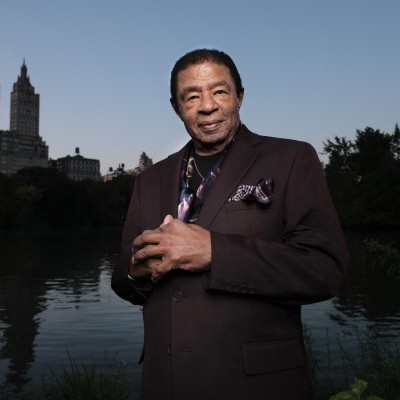
“What I got from Percy was the dignity of playing the bass,” Buster Williams said of Percy Heath.
Aug 26, 2025 1:53 PM
Buster Williams, who at the age of 83 has been on the scene for 65 years, had never done a Blindfold Test. The first…
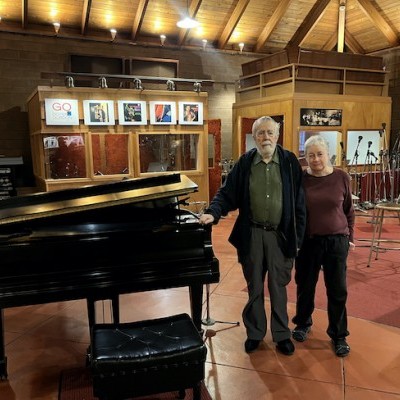
Don and Maureen Sickler serve as the keepers of engineer Rudy Van Gelder’s flame at Van Gelder Studio, perhaps the most famous recording studio in jazz history.
Sep 3, 2025 12:02 PM
On the last Sunday of 2024, in the control room of Van Gelder Studio, Don and Maureen Sickler, co-owners since Rudy Van…
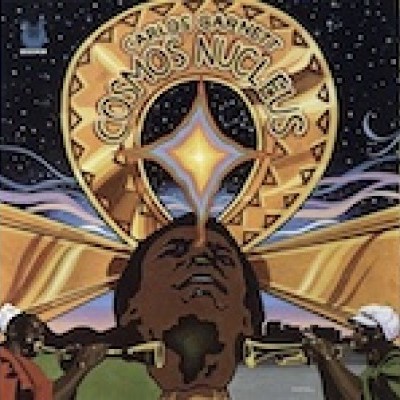
The Free Slave, Cosmos Nucleus and Sunset To Dawn: three classic Muse albums being reissued this fall by Timer Traveler Recordings.
Aug 26, 2025 1:32 PM
Record producer and “Jazz Detective” Zev Feldman has launched his next endeavor, the archival label Time Traveler…

Butcher Brown, clockwise from top left: Marcus Tenney, DJ Harrison, Morgan Burrs, Corey Fonville and Andrew Randazzo. (Keyboardist Harrison couldn’t make the gig, so special guest Jacob Mann sat in with the band at the Reno Jazz Festival.)
Aug 19, 2025 12:41 PM
The band known as Butcher Brown has enjoyed the last half-decade basking in the glow from the twin engines of critical…
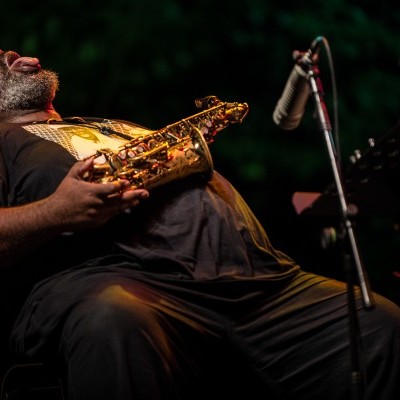
This year’s Jazz em Agosto set by the Darius Jones Trio captured the titular alto saxophonist at his most ferocious.
Aug 26, 2025 1:31 PM
The organizers of Lisbon, Portugal’s Jazz em Agosto Festival assume its audience is thoughtful and independent. Over…